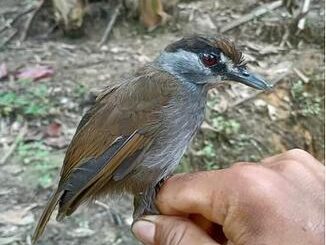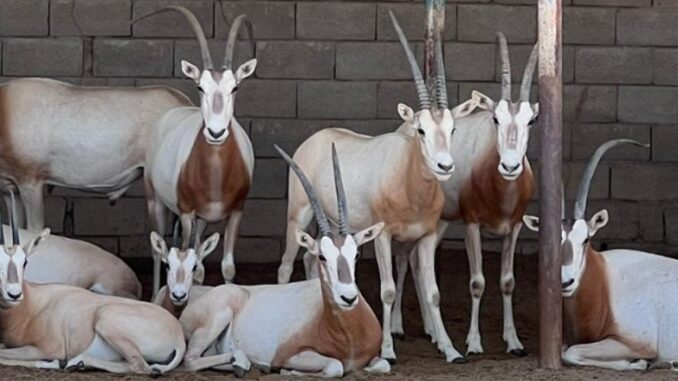
LYON, France, March 9, 2025 (ENS) – Some 20,000 live animals, all endangered or protected species, have been seized during Operation Thunder, the biggest global crackdown against wildlife and forestry trafficking networks in history, jointly coordinated by Interpol and the World Customs Organization.
More than 100 companies involved in the trafficking of protected species were identified.
The live animals – big cats, antelopes, birds, pangolins, primates, and reptiles – were rescued in connection with the 2,213 seizures made worldwide.
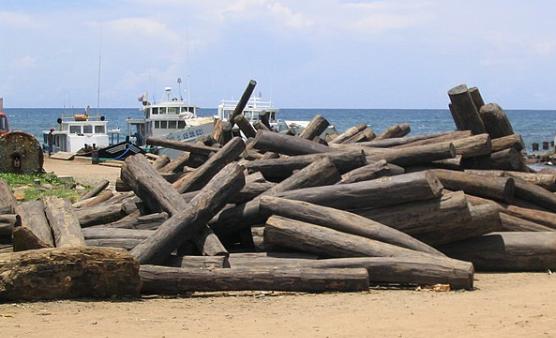
Timber cases represent “the most significant seizures,” of Operation Thunder 2024, Interpol said. Timber seizures occurred primarily in sea cargo container shipments, while most of the other seizures took place at airports and mail processing hubs.
Illegal logging accounts for as much as 10–30 percent of logging worldwide, with some estimates as high as 20–50 percent when laundering of illegal wood is included, according to a joint study by WWF and Interpol published in 2019.
That study estimated that an area of forest equivalent in size to Austria disappears worldwide every year as the result of illegal logging and the growing engagement of organized crime.
Authorities arrested 365 suspects and identified six transnational criminal networks suspected of trafficking animals and plants protected by the Convention on International Trade in Endangered Species, CITES.
Although protected under international law, such species are illegally trafficked to meet market demands, for food, perceived medicinal benefits, so-called luxury and collector items, or as pets and competition animals.
Now in its eighth year, Operation Thunder 2024, which ran from November 11 through December 6, brought together police, customs, border control, forestry and wildlife officials from 138 countries and regions, marking the widest participation since the first Operation Thunder in 2017, the coordinating agencies announced in February.

“Organized crime networks are profiting from the demand for rare plants and animals, exploiting nature to fuel human greed. This has far-reaching consequences. It drives biodiversity loss, destroys communities, contributes to climate change and even fuels conflict and instability,” said Interpol’s new Secretary General Valdecy Urquiza said.
“Environmental crimes are uniquely destructive, and Interpol, in cooperation with its partners, is committed to protecting our planet for future generations,” said Urquiza, an attorney, a senior police officer in Brazil, a former Interpol Vice President for the Americas, and a graduate of the FBI National Academy in Quantico, Virginia.
Where possible during the operation, wildlife forensic experts collected DNA samples before transferring the animals to conservation centers, where their health was assessed while they awaited repatriation or rehabilitation, according to national frameworks and relevant protocols.
The collection of DNA is a crucial part of supporting prosecutions, as it helps confirm the type of species and its origin or distribution, shedding light on new trafficking routes and emerging trends, Interpol said.
Trafficked Parts of Endangered Animals Seized
Participating countries confiscated hundreds of thousands of protected animal parts and derivatives, trees, plants, and marine life, In addition to the live animals.
Authorities investigated online activities and found suspects using multiple profiles and linked accounts across social media platforms and marketplaces to expand their reach.
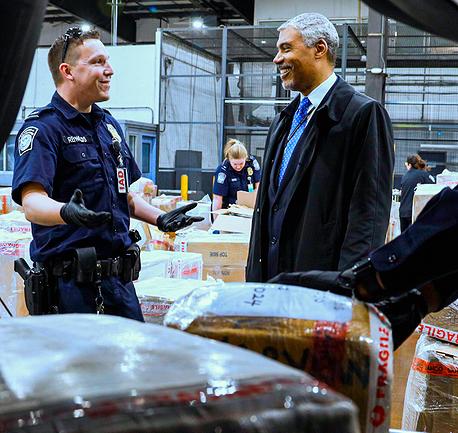
Ian Saunders of the United States, who serves as WCO Secretary General, said, “Operation Thunder continues to shed light on a crime that is often not a priority for enforcement actors. Through our joint efforts we have established cooperation mechanisms that facilitate the exchange of information and intelligence, and we have refined our enforcement strategies.”
“The illegal wildlife trade is still rapidly growing, highly lucrative and has devastating effects. The WCO remains committed to supporting its members and partners to effectively combat this serious crime.”
Major seizures during Operation Thunder 2024 included more than 300 firearms, vehicles and poaching equipment.
In addition, seizures included:
- – Indonesia: 134 tonnes of timber headed to Asia via ocean freight.
- – Kenya: 41 tonnes of exotic timber headed to Asia via ocean freight.
- – Nigeria: 4,472 kg of pangolins scales. Based on intelligence, Nigeria Customs seized 4,472 kg of pangolin scales in two internal interceptions, one inland and the other at land boundary.
- – Türkiye: 6,500 live songbirds discovered during a vehicle inspection at the Syrian border.
- – India: 5,193 live red-eared ornamental slider turtles concealed in passenger suitcases arriving from Malaysia at Chennai Airport.
- – Peru: 3,700 protected plants intercepted en route from Ecuador.
- – Qatar: Eight rhino horns found in a suspect’s luggage while transiting from Mozambique to Thailand.
- – United States: One tonne of sea cucumbers, considered a seafood delicacy, smuggled from Nicaragua.
- – Hong Kong, China: 973 kg of dried shark fins originating from Morocco seized at the airport.
- – Czech Republic: Eight tigers, aged between two months and two years, discovered in a suspected illegal breeding facility.
- – Indonesia: 846 pieces of reticulated python skin, from the world’s longest snake species, concealed on board a ship.
- – Australia and the United Kingdom reported seizures of bear bile, often used in traditional medicine.
Customs administrations contribute to these efforts by combating the illegal wildlife trade.
“Customs plays a fundamental role in protecting biodiversity through its mandate to stop the illegal wildlife trade, and facilitate the legal trade in endangered species of fauna and flora,” WCO Secretary General Saunders, explained on World Wildlife Day, March 3, just before the Operation Thunder 2024 results were released.
“By disrupting the illegal wildlife trade, we safeguard ecosystems and economies, and increase security,” he said. “Wildlife criminals are constantly adapting and so must we, especially through intelligence-driven enforcement, strategic partnerships and cutting-edge technology.”
Authorities Draw Intelligence Picture of Wildlife, Timber Trafficking
Regular operations such as Thunder enable investigators to build a comprehensive global intelligence picture and detailed offender profiles, enhancing the effectiveness of enforcement efforts and resolution of cross-border cases, Interpol said.
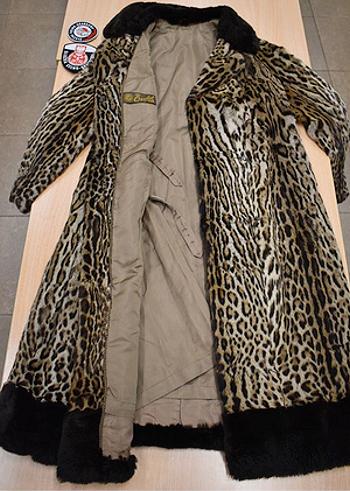
Ahead of the operation, countries exchanged actionable intelligence on ongoing cases and high-value targets, updating critical information on 21 Interpol Red Notices for suspected traffickers wanted internationally.
“Cooperation between various stakeholders is essential for effectively combating transnational criminal networks, from seizure to arrest and prosecution, as the data collected enable customs administrations to refine their risk management and compliance strategies, and stay one step ahead of criminals, ensuring that their contribution to the fight against wildlife crime is dynamic and responsive,” the international police agency explained.
This exchange continued throughout Operation Thunder 2024, with officers using secure channels provided by both Interpol and the WCO to communicate in real time.
The Operation Thunder series is backed by the CITES Secretariat and carried out under the partnership framework of the International Consortium on Combating Wildlife Crime. The 2024 operation was co-funded by the European Union, the UK Department for Environment, Food and Rural Affairs, and the United States Agency for International Development, USAID.
Trump Demolishes 80 Percent of USAID
Secretary of State Marco Rubio said March 10 that the Trump administration has ended its cuts to the 60 year-old U.S. Agency for International Development. The surviving 18 percent of its former aid and development programs will be shifted to the State Department.
Rubio announced these developments in a post on X (formerly Twitter) that said the USAID review was now “officially ending,” with some 5,200 of USAID’s 6,200 programs eliminated.

On his first day in office, January 20, President Donald Trump issued an executive order directing a freeze of foreign assistance funding and a review of all of the tens of billions of dollars of U.S. aid and development work abroad. Trump accuses USAID of offering “wasteful” aid to poorer countries that advanced a liberal agenda.
Those programs “spent tens of billions of dollars in ways that did not serve, (and in some cases even harmed), the core national interests of the United States,” Rubio wrote.
Democratic lawmakers and others call the shutdown of congressionally-funded programs illegal, maintaining that this shutdown requires congressional approval.
The Trump administration has given almost no details on which aid and development efforts abroad it spared as it mass-emailed contract terminations to aid groups and other USAID partners by the thousands within days earlier this month. The rapid pace, and the steps skipped in ending contracts, left USAID supporters challenging whether any actual program-by-program reviews had taken place.
Aid groups say some life-saving programs that Rubio and others had promised to spare got the termination notices, such as emergency nutrition for starving children and drinking water in camps for families uprooted by war in Sudan.
The shuttering of USAID that followed Trump’s order reversed decades of policy that humanitarian and development aid abroad advanced U.S. national security by stabilizing regions and economies, strengthening alliances and building goodwill.
CITES to Strengthen Enforcement at Upcoming Conference
CITES regulates international trade in over 40,000 species, operating through a permit system issued by the national management authorities of the Convention’s soon to be 185 Parties, working together so that trade is legal, traceable, and sustainable.
In early February, the CITES Standing Committee’s Committee held its last meeting before the important 20th meeting of the CITES Conference of the Parties, CITES CoP20, to be held in the ancient city of Samarkand, Uzbekistan from November 24 to December 5, 2025.
The February CITES meeting saw strengthened compliance with the Convention, progress in the fight against wildlife crime, and enhanced cooperation for ensuring the sustainability and legality of international wildlife trade.
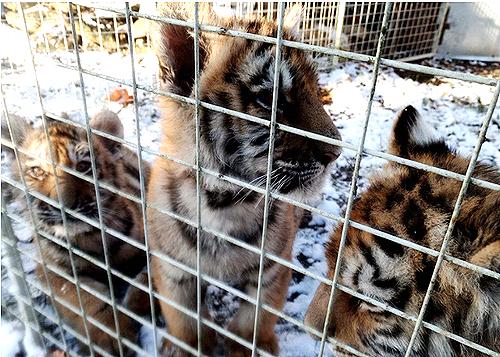
At CoP20, Parties will reconvene to establish the course of action for CITES-listed species over the next three years.
CoP20 will review the broader role of CITES in working with other multilateral environmental agreements, contributing to the United Nations Sustainable Development Goals and the Kunming-Montreal Global Biodiversity Framework.
COP20 is intended to advance the CITES Strategic Vision for a world where all international trade in wildlife is legal, sustainable, and traceable.
Featured image: These antelopes, called Arabian oryx, were seized in Iraq during Operation Thunder 2024. In 1986, the International Union for the Conservation of Nature, IUCN, re-listed the Arabian oryx from extinct in the wild to endangered. By 2009, the Arabian oryx was protected by law everywhere it appears. CITES allows international trade in Arabian oryx only in exceptional circumstances, not commercially. Today there are 1,000+ Arabian oryx in the wild, with at least 6,000 held in zoos, preserves, and private collections.
© 2025, Environment News Service. All rights reserved. Content may be quoted only with proper attribution and a direct link to the original article. Full reproduction is prohibited.

